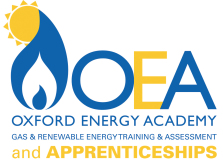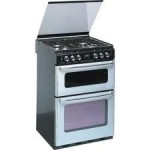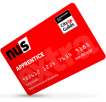Domestic Appliances: CENWAT, HTR1, CKR1
Domestic Appliances comprise of:
- CENWAT – Central Heating/Water Heaters
- HTR1 – Fires
- CKR1 – Cookers
Also available are:
- DAH1- Warm Air
- MET1 - Meters
- CPA1 - Combustion Performance Analysis
CENWAT
CENWAT is designed to assess the competence of a gas engineer to install, exchange, commission, disconnect, service, carry out repair and attend to breakdown of appliances. However, as with all ACS assessments CENWAT will only assess an engineer’s competence in matters of gas safety.
The types of domestic appliances covered by CENWAT includes:
- Open and balanced flue (natural draught and fan assisted)
- Central heating & hot water boilers
- Circulators
- Combination boilers
- Storage water heaters
- Instantaneous water heaters with a heat input equal to or less than 70kW.
Pre-requisites
Gas engineers will need to hold an appropriate valid ACS core gas safety assessment and CPA1.
The Assessment
A typical practical CENWAT assessment for an engineer carrying this out for the first time will include:
- Completing the installation and commissioning of a gas boiler
- Identifying gas safety components
- Installation faults and servicing in accordance with the manufactures instructions
- Operational and performance check of an instantaneous water heater, including temperature rise and flow rate.
CENWAT training forms part of CCN1 and appliances, or is available as a stand alone course.
HTR1
HTR1 is designed to assess the competence of a gas engineer to install, exchange, commission, disconnect, service, carry out repairs and attend to breakdown of appliances. However, as with all ACS assessments, HTR1 will only assess an engineer’s competence in matters of gas safety.
During assessment gas engineers must be able to correctly identify:
- Appliance type
- Apply the guidance given in the manufactures instructionsand Appropriate British Standard
- Ensure that the appliance is safe to use
Types of appliances covered by HTR1:
- Gas fires
- Wall heaters
- Convector heaters
- Stoves, which may be open, balanced or fan assisted
- Flueless gas fires (with and without catalytic converters)
- Greenhouse heaters
Pre-requisites
Prior to taking HTR1, gas engineers will need to hold a valid appropriate core gas safety assessment and CPA1.
HTR1 is available as part of CCN1 and appliances or as a stand alone course.
CKR1
Covers gas work on all gas cooking appliances, including installation, commissioning, exchanging, disconnecting, servicing, attending to breakdowns and repairs:
- Free-standing and ‘slide in’ cookers
- ‘Built in’ hotplates
- ‘Built in/under’ ovens and grill units
When CKR1 is held with CENWAT and CPA1, the Gas Safe Register will recognise you as competent to work on range type cookers e.g. AGAs.
Pre-requisites
If the appliance is installed within a domestic dwelling and is connected to a Natural Gas supply, the engineer must hold a valid CCN1 certificate. CCN1 may also be appropriate where the appliance is installed in a commercial property. CKR1 can be completed by a commercial gas engineer holding a commercial core, where a cooking appliance is located in a commercial environment. In this case, the catering engineer holding CCCN1 could undertake CKR1 without CCN1.
Taking the assessment
For initial assessment:
- Engineers must demonstrate that they can safely carry out the installation and commissioning of a freestanding gas cooker, and explain its safe operation.
- The assessment may require the engineer to carry out the service of a cooking appliance, and identify any defects.
CKR1 can be taken with CCN1 and appliances or as a course on its own.
Training and assessment
One day of training and one day of assessment.
Assessment only
One day written and practical assessments
Tuesday evenings, over two evenings.
-
You will need to bring with you
- Candidate name and address
- Candidate National Insurance number
- 2 passport sized photographs
- Copies of relevant qualifications and/or evidence of gas work experience
- A declaration of the category for the individual making the application
- First-time applicants will also be required to provide an acceptable form of photographic identification e.g. a passport or driving licence
























